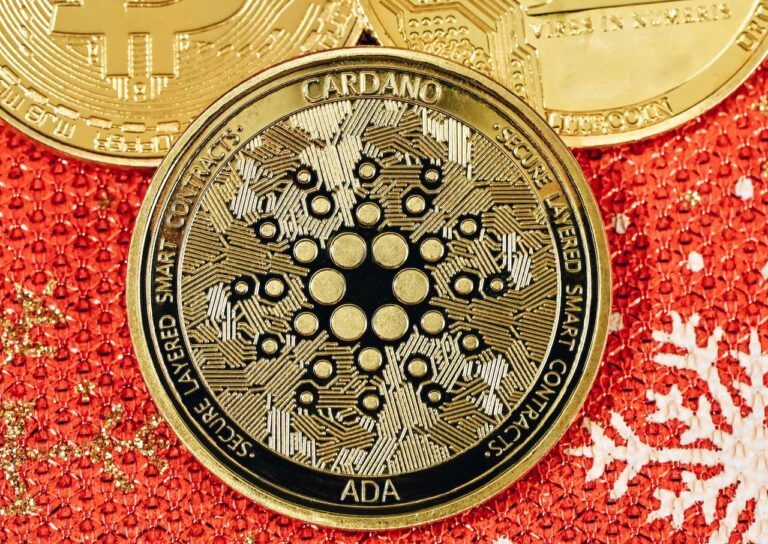In a recent video, Shahaf Bar-Geffen, CEO of FinTech startup COTI Group, explained why Cardano-powered algorithmic stablecoin Djed ($DJED) maintained its peg last week, despite some other major stablecoins faltering amidst market turbulence. He also explained why Djed has a bright future.
Background
On 26 September 2021, day two of the two-day Cardano Summit 2021, IO Global (IOG), the blockchain technology firm responsible for the research and development of Cardano ($ADA), and FinTech startup COTI Group, unveiled Djed, a formally verified crypto-backed pegged algorithmic stablecoin for Cardano that was designed by the former and is issued by the latter.
On the same day, COTI published a blog post (titled: “Why Being the Issuer of Djed, Cardano’s Official Stablecoin, is a Game Changer for COTI”), which had this to say:
“Djed isn’t just a stablecoin built upon Cardano’s chain, it is also designed to become the ultimate coin with which Cardano’s entire network transaction fees will be paid. It makes more sense for a chain to have predictability in how much transaction costs, rather than have volatile gas fees, and Djed will do just that…
“While our main goal is to issue stablecoin for enterprises and merchants on COTI’s Trustchain, we also plan on being involved with stablecoin issued on other chains. Our long relationship with Cardano, leading to an equity investment by their ecosystem fund, has created the opportunity for COTI to become the official issuer for Djed, Cardano’s stablecoin.
“As part of COTI’s role, COTI is in charge of developing the user interface system and will operate the integration between users to the smart contracts for the stablecoin. COTI will partner with enterprises, developers, and others parties who wish to mint both the stablecoin and the reserve coin used as part of the pegging algorithm.
“$DJED and its reserve coin’s mint and burn fees will be charged in $ADA and will be entered into the equity pool of the protocol. The reserve coin holders get a share of this pool as an incentive for their participation in maintaining the $DJED peg ratio.
“As the provider of this service, users will be subject to operating fees that will be paid in $ADA and deducted from the initial deposit and operational costs. We plan on converting such $ADA fees to $COTI coins, initially by buying $COTI directly in the market and supporting the demand for $COTI, then by depositing such $COTI in COTI’s Treasury, for the benefit of the Treasury users. It’s a real win-win and a great opportunity for the COTI ecosystem.“
Here is some information from Djed’s website that explains how Djed’s stability mechanism works:
“$DJED is an overcollateralized stablecoin that uses exogenous collateral ($ADA) to ensure stability. The protocol is backed by 400-800% overcollateralization and is guaranteed by its reserve coin, $SHEN.
“The stability of $DJED is based on overcollateralization, which eliminates the need for trust in a governance token as seen in algorithmic stablecoins. The platform is also fully decentralized and community-driven, allowing for open-source development and community involvement in minting and burning $DJED and $SHEN.“
Why Djed Maintained Its Peg Last Week
In a video released on Monday (March 20), the COTI CEO highlighted the three key properties that kept Djed stable: decentralization, over-collateralization, and verifiability. Djed doesn’t rely on fiat or centralized manipulation, and its over-collateralization with crypto allows for on-chain verification of the collateral.
Bar-Geffen also noted the high demand for Djed in recent days and revealed that other DeFi ecosystems outside of Cardano, such as Ethereum and Binance Smart Chain, have requested Djed integration. DeFi participants in these ecosystems need a reliable stablecoin, and Djed’s stability is proving to be an attractive option.
This increased demand and potential expansion into other DeFi ecosystems have significant implications for Djed’s shareholders. More fees will be generated as Djed’s usage grows, which will, in turn, boost the value for $SHEN holders. Additionally, the growing demand for Djed will increase the APY for COTI’s treasury participants, demonstrating the positive impact of Djed’s stability on the entire ecosystem.
Image Credit
Featured Image via Unsplash









